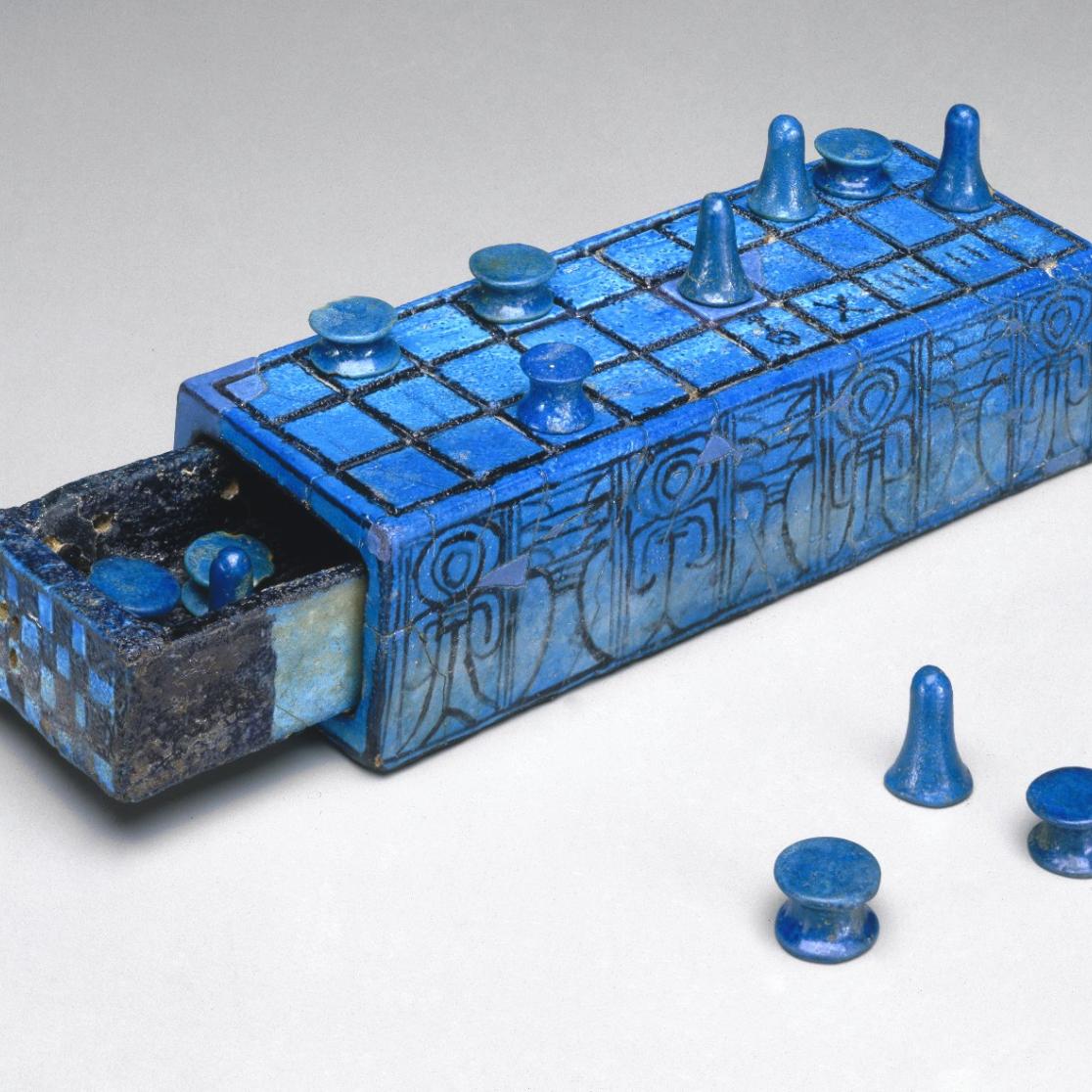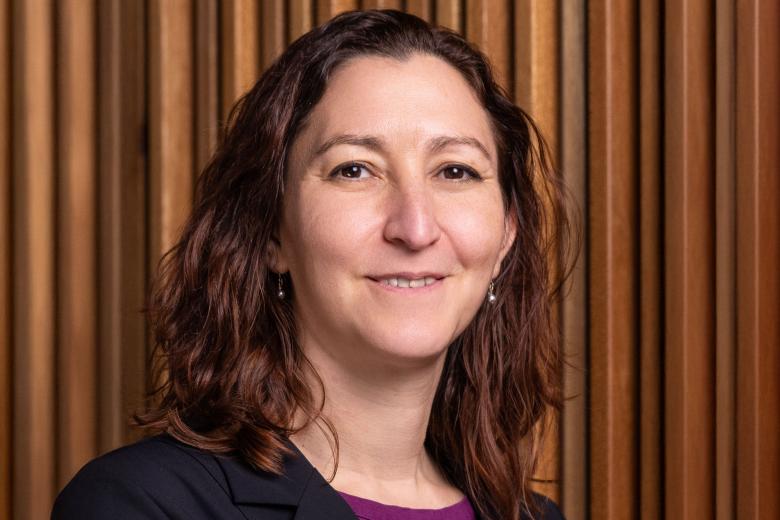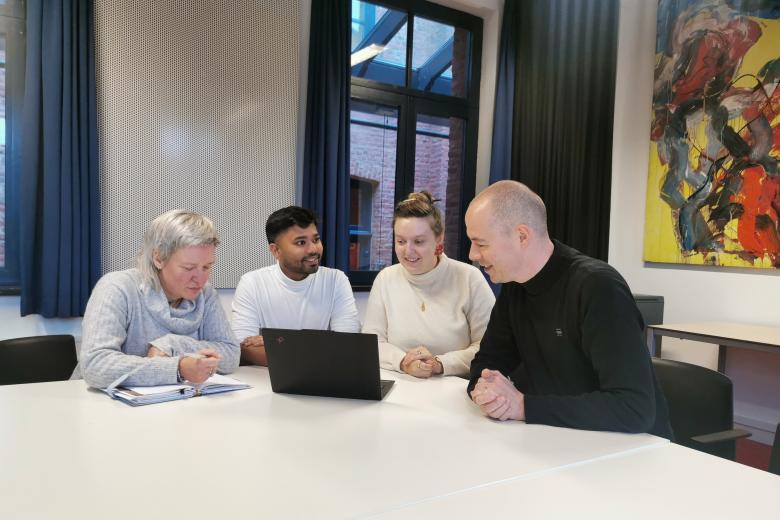Ancient games and Artificial Intelligence
Dr Cameron Browne comes from a game-playing family: ‘My mother valued the developmental potential of games, and my grandmother was the meanest Scrabble player I’ve ever encountered’. It is therefore not a coincidence that Browne has spent a large portion of his academic life researching games and has been awarded an ERC consolidator grant of €2 million to start up a five-year research project called the ‘Digital Ludeme Project’. This project will take place at the Department of Data Science and Knowledge Engineering, where it is embedded within its Game AI and Phylogenetic Networks research.
At university, Browne became fascinated with the board game Hex: ‘Hex’s exquisitely simple rules make it possibly the most elegant board game ever invented. I even learnt enough about the game to write a book on it.’
A second book on the broader family of connection games led directly to Browne’s PhD studies, in which he broke games down into their constituent elements, called Ludemes. He modelled them in a computer programme called LUDI and used a genetic algorithm to evolve existing rule sets into new combinations that represented new games. ‘This was actually quite easy to do. LUDI spat out thousands of new games per second, but the real trick was in getting the programme to determine which of these, if any, were actually any good.’
To this end, he made LUDI play each new game against itself dozens of times and measure certain aesthetic criteria to look for traits that human players found interesting in games, such as drama, depth, uncertainty and tension. LUDI eventually identified two games as particularly compelling, and these have both been commercially published. One, named ‘Yavalath’ by LUDI, has proven especially popular with players, and has been listed in the top #100 abstract board games of all time.
Inspiration
The initial seed for the idea came a few years ago when a Finnish PhD student emailed Browne out of the blue: ‘He’d just been to a conference where one speaker described my LUDI system and the ancient Egyptian board game Senet , for which the exact rules are not known. The student wondered if I had ever applied LUDI to such a case. I hadn’t, but this was an interesting twist on a challenge I’d wanted to explore for some time: to take existing games and automatically optimise their rule sets to correct flaws and improve them.’
Researching Senet and other ancient games, Browne found that while there’s ample archaeological evidence of boards and pieces, the original rules of play were seldom recorded. It’s likely they were passed down the generations by oral tradition. Even when the rule sets of ancient games were recorded, many details have been lost, destroyed, corrupted or misinterpreted.
The Digital Ludeme Project will harness artificial intelligence to help provide more reliable reconstructions of ancient games that are both historically and mathematically plausible.
Why games are important
Games have been an important part of every human culture at least since the beginning of recorded history. According to Browne, the play element is central to being human: ‘Playing games helps us learn about the world around us in a safe environment. Games are a social lubricant: it brings people together. It is how we learn to interact and negotiate with others, and it influences how we develop ethically.’
Next to the social aspect, games offer a touchstone, or common basis, shared by all cultures, allowing them to be used as instruments of comparative cultural analysis. One famous case is the traditional Indian game of Pachisi, which is played on quite a distinct board. When evidence was discovered of an ancient Mexican game played centuries earlier on a suspiciously similar board, one historian in 1879 took this as evidence of pre-Columbian contact between Asia and South America, a claim disputed by another historian in 1950 due to the notion of ‘limited possibilities’, i.e. coincidence. The Digital Ludeme Project will provide tools and techniques for giving some degree of mathematical certainty to such cases.
As well as offering comparisons across cultures, games also exhibit extraordinary longevity within cultures, as their rules embody fundamental mathematical truths; moving a piece two squares forward, or jumping over an adjacent piece, would be the same 5,000 years ago in ancient Mesopotamia as today. ‘In fact, there’s evidence that a precursor of modern Backgammon, called the Royal Game of Ur, might have been played continuously from 2,600 BCE to today, which would mean this game has endured longer than most human civilizations or modern religion.’
Games are also unusual cultural artefacts because they embody underlying mathematical principles. A secondary aim of this project is to explore the relationship between the spread of games and the transmission of underlying mathematical concepts between cultures. Browne says: ‘I’m not a trained historian, but I do have a degree in Psychology, so I’m attuned to a “human” understanding of games as much as to mathematical or computational understandings. The background work for my books on Hex and connection games involved a fair amount of historical detective and archival work.’

Games and Artificial Intelligence
According to Browne, the explosive growth in the video games industry has certainly boosted the perceived legitimacy of game AI as a topic of study.
Almost every university includes courses on some aspect of game design in its curriculum these days.
A new field of study is born
Browne describes his projects as the birth of a new field of study called ‘digital archaeoludology’ (DA): the improvement and preservation of game knowledge using modern computational techniques. DA involves the analysis and reconstruction of traditional games from incomplete descriptions. The aim is to provide tools and methods to help historians and researchers better understand the development of traditional games throughout human history.
The ultimate goal of the project is to foster a better understanding of traditional games and their development over recorded human history. ‘I hope to set out the foundational principles and approaches of digital archaeoludology for its successful uptake, to provide practical software tools that games historians, archaeologists, anthropologists and ethnologists will find useful in their own work, and to bring an unprecedented level of mathematical rigour to the historical and cultural study of traditional games.’
Gamer
When we asked if Browne is a (video)gamer himself: ‘I am indeed. I especially enjoy classic board games such as Chess, Scrabble, Backgammon and Hex, but my one enduring passion in video games is for the roguelike family of games, which I have enjoyed playing off-and-on for over 30 years now. These public-domain games involve guiding virtual characters through randomly generated dungeons, negotiating various monsters and other challenges along the way, to achieve some difficult but worthwhile goal. I don’t know how many times I’ve retrieved the Amulet of Yendor or defeated the Balrog or Morgoth over the years.’
And what about cheating? ‘I would never cheat in a game played over-the-board against another person, out of respect for both my opponent and the game itself.

Relevant links
Also read
-
Nava Tintarev takes a leading role in national computer science platforms
As of January 2026, Nava Tintarev, Professor of Explainable AI at Maastricht University’s Department of Advanced Computing Sciences (DACS), will join the boards of two of the Netherlands’ most prestigious computer science platforms.
-
Ron Heeren appointed fellow of the Netherlands Academy of Engineering
Professor Ron Heeren, distinguished university professor at Maastricht University (UM) and director of the Maastricht MultiModal Molecular Imaging Institute (M4i), was appointed as a fellow of the Netherlands Academy of Engineering (NAE) on Thursday 11 December.
-
UM builds open education and digital literacy into BKO/UTQ
Maastricht University is taking a practical step to support early-career teachers: open education and digital literacy will be built more firmly into the BKO/UTQ.